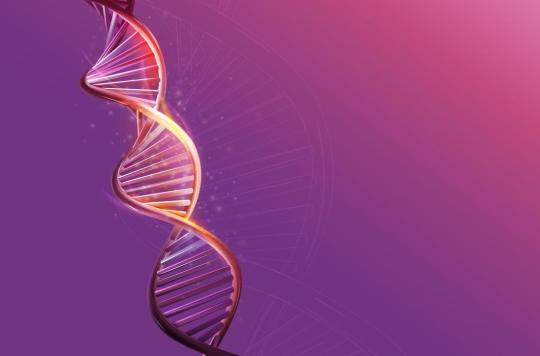Canadian geneticists claim that menopause is linked to the fact that men have a historical propensity to seek younger companions.

What if physiological and natural processes had other origins? This is the theory put forward by a team of Canadian menopause researchers. In an article published in the online journal PLOS Computational Biology, these geneticists claim that women experience menopause because men have historically had a tendency to choose younger companions. Suddenly, fertility would have become over time useless for women after 45 years. For Professor Rama Singh, author of the study, the current extension of longevity and later pregnancies could potentially postpone the age of menopause over a long period.
It’s exactly the opposite, argues Dr Maxwell Burton-Chellew, a biologist at the University of Oxford. It is because women become less fertile that men have a preference for younger women.
While waiting for the experts to agree, a few simple reminders on this often delicate period for women.
This is a fairly brief stage in a woman’s life. Menopause is defined by stopping menstruation. Brutal or staggered, no woman escapes it. The hormones secreted to facilitate creation are no longer present, so symptoms may appear due to the lack of these hormones mainly estrogen.
Although for the majority of women, menopause arrives around the age of 50, it can occur naturally between the ages of 40 and 55.
Menopause causes a wide variety of symptoms: hot flashes, irregular periods, dryness of the skin and vagina, trouble sleeping, irritability, urinary incontinence, weight gain.
The lowering of estrogen levels characteristic of menopause has long-term consequences on the bones (osteoporosis), blood vessels and the heart (high blood pressure, coronary artery disease, atherosclerosis, heart attack, stroke). Ten years after menopause, cardiovascular risks for women are as high as those for men of the same age.
What to do in case of menopause?
There are a few steps you can take to get through menopause, even if they haven’t been scientifically studied:
Eat in a balanced way and avoid spicy foods, caffeine (coffee, tea, chocolate, cola) and hot or alcoholic drinks that generate hot flashes. Enrich your diet with calcium (milk and dairy products, mineral waters rich in calcium, possibly calcium-based preparations).
Play sports (walking, swimming, cycling, etc.) to regulate your sleep and fight against mood disorders, osteoporosis, overweight, cholesterol and cardiovascular disease.
Relax by practicing yoga, meditation, tai chi, stretching, etc. Take the time to take care of your body: massages, hydration, skin care, etc.
In case of vaginal dryness, hygiene products, sold in pharmacies or supermarkets, such as lubricating gels and liquids can be placed at the entrance to the vagina before each report and play the same role as physiological secretions. We prefer gels based on water and not on fatty substances.
What is hormone replacement therapy (HRT)?
When they are severe, treatment for menopausal disorders is based on the prescription of sex hormones, estrogens and progesterone, intended to compensate for the drop in their blood levels (this is hormone replacement therapy or HRT). .
Recent studies have shown that HRT, taken for several years, increases the risk of cardiovascular disease and strokes (strokes). HRT combining estrogen and progesterone also increases the risk of breast cancer (but decreases the risk of uterine cancer).
For these reasons, HRT is contraindicated in women who have a personal history of cardiovascular disease, who have had previous breast or uterine cancer, or who have abnormal vaginal bleeding.
For other women, the French Agency for the Safety of Health Products (Afssaps) has issued clear recommendations:
HRT is indicated in women suffering from menopausal disorders (especially hot flashes) with a significant impact on quality of life. HRT can then be started if the woman wishes, at the smallest effective dose, for the shortest possible time, with clear information on the risks. Regular reassessment must be ensured by the attending physician.
HRT is also indicated in postmenopausal women at high risk of fractures, but only in case of intolerance or contraindication to other treatments indicated for the prevention of osteoporosis.
If you are wondering whether or not to take HRT, talk to your doctor or gynecologist. Have a clear explanation of how useful treatment is for you and its possible risks and benefits.
.















